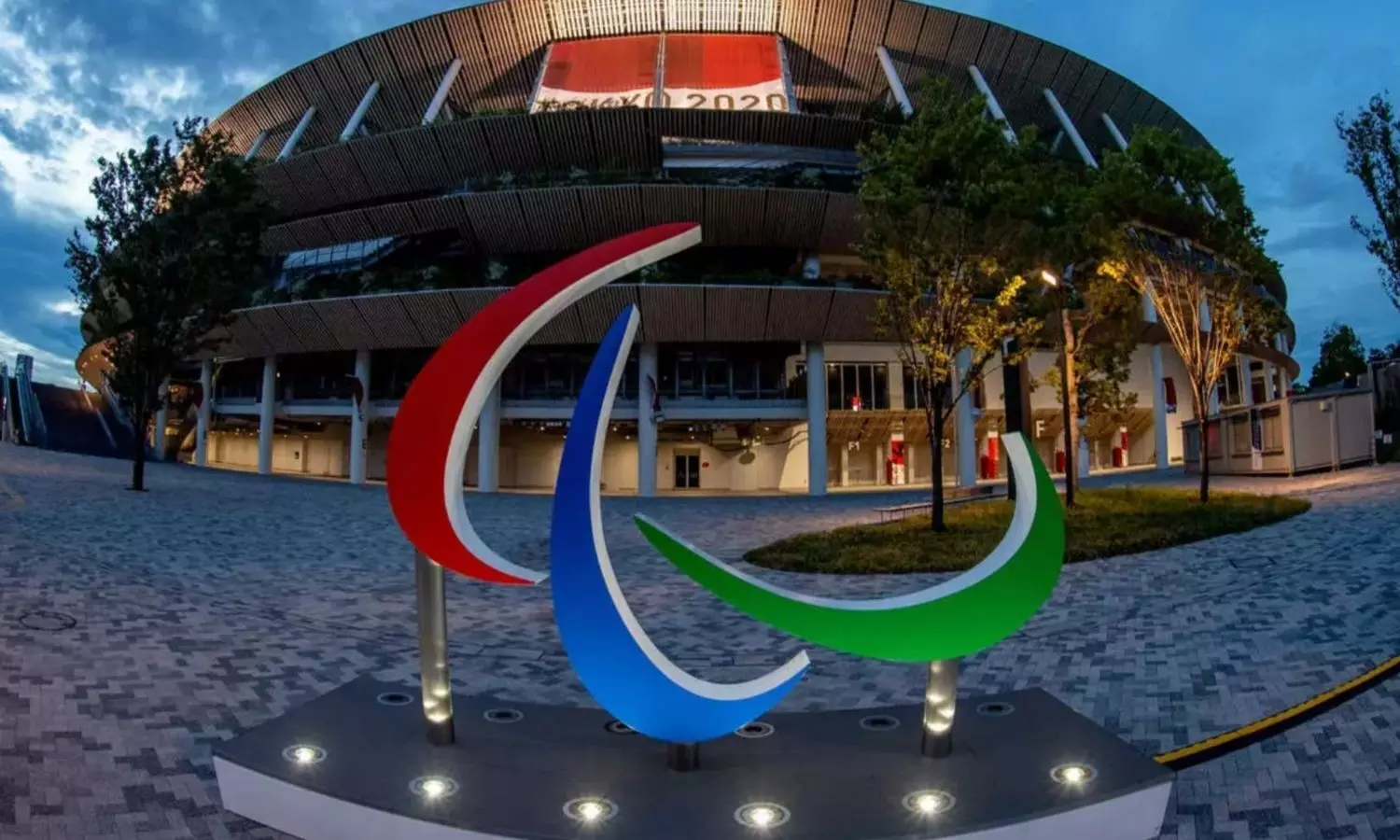Tokyo 2020 Paralympics
A guide to the terminology to be used for Tokyo Paralympics: Words, phrases to note
Adopting a sensitive and aware vocabulary is of primary importance while engaging with and discussing about para athletes at the Tokyo Paralympics.

Tokyo Paralympics (Source: Getty)
With the Tokyo Paralympics beginning today with great fanfare at the Olympic stadium in the Japanese capital, the following two weeks are expected to dazzle with paralympians putting on stellar performances and clinching glory. With 22 sports being featured overall in this edition of the Games and India sending in their largest-ever contingent of 54 athletes who will compete across 9 sports, the Tokyo Paralympics will be a medal-rich outing for the Indians.
As the buzz builds around para athletes and their achievements, there are a few key things to keep in mind while discussing them. Blame it on the social conditioning, especially in India, if you will, para athletes or even, people with impairments - be it physical or intellectual, are not seen in the same light as able-bodied people. Almost always there is a tone of either extra wary, utter condescension, outright insensitivity and sadly, a pitiful approach while interacting or even, discussing impaired individuals. Most people do not intend to make the distinction but in their efforts to sound politically correct, they end up going wrong and come off sounding disrespectful and patronizing.
While the greater battle to be won is one that revolves around changing the mindset and the perception, the first step towards achieving this would be to erase the conception of viewing para athletes as 'disabled' and 'challenged' and language is the primary tool to enforce this change.
Before we fully immerse ourselves in the craze of the Tokyo Paralympics, a sensitization is important - our vocabulary has to be more liberating instead of portraying para athletes in a degrading, stereotypical way that robs them of their very individuality.
The need for a more inclusive approach towards 'disabled' individuals
The core thing to understand about disability is that it isn't just a reference to a health problem but rather a signifier of the individual's life experience, as a whole. Just because a person is impaired, it does not necessarily mean that they are 'sick' or their life is full of 'tragedy'. According to the World Health Organisation disability is used as an umbrella term, covering impairments (a problem in body function or structure), activity limitations(difficulty faced by an individual in executing a task or action), and participation restrictions(issue experienced by an individual in involvement in life situations).
Further, if we are to assess the Social Model of Disability, we come to see that an individual is seen as disabled by the society at large owing to the various normative societal attitudes, cultures and limitations that restrict the scope of an impaired individual. In all honesty, the disability of an individual should not be, at any cost, taken as the definitive aspect of the person - in doing so, we fail to highlight the person or a para athlete, in this case.
Romanticising, pitying, over-selling disability and making a para athlete appear superhuman for their achievements, is problematic. As a rule of thumb, we need to look at the person first - who they are, and not what their disability is and least of all, make that disability appear like a crippling factor for them and showcase them as disadvantaged. This kind of a mental divide needs to be eradicated - if not the same, at least a closely similar lens needs to be adopted in viewing both able-bodied and para athletes and making the world more inclusive for them.
The power of language and the need for a sensitive vocabulary
Language and diction go a long way in bringing change. How we talk, interact, engage with para athletes matter most. We should, by no means, assume things dictated by age-old stereotypes about the para athletes simply because they are impaired. If we do so, we end up discounting a major aspect of their personality itself. We should respect the space of the athlete, treat them as we would treat any other able-bodied athlete - there isn't a prying need to harp on disability and make it seem like the defining aspect of the athlete.
Here are a few guidelines/words to keep in mind while discussing para athletes:
| Words/Phrases to Avoid | Words/Phrases to Use |
| disabled/handicapped athlete | para athlete; athlete with an impairment |
| blind | visual impairment; blindness; visually impaired |
| abnormal/crippled/invalid/mentally retarded/spastic | specify the impairment; athlete with mobility aid; athlete with intellectual impairment, athlete with cerebral palsy |
| unfortunate/victim/sufferer/tragic/afflicted with | not all para athletes lead unhappy lives or are victims; athlete born with (mention impairment) |
| wheelchair-bound/wheelchair-confined | a wheelchair allows for mobility so it is not a confining object; athlete who uses a wheelchair; wheelchair user |
| dwarf | person of short stature |
| paraplegic/quadriplegic | athlete with paraplegia; athlete with quadriplegia |
| stumps | amputation; amputee |
| normal athletes | able-bodied athletes |
| brain damaged | person who has acquired a brain injury |
| 'the disabled', 'the blind' | athletes with physical impairment; athletes who are visually impaired |
| defect (birth defects, congenital effects) | athlete with disability since birth; athlete with congenital impairment |
| defective/deformed/subnormal | specify the impairment |
| epileptic | person with epilepsy |
| insane/mental patients/neurotic/mad | person with psychiatric or mental illness |
